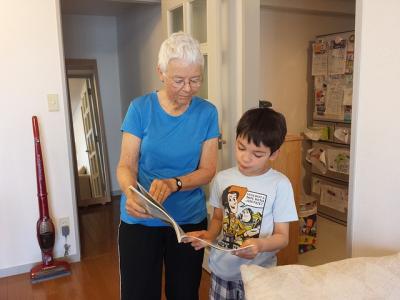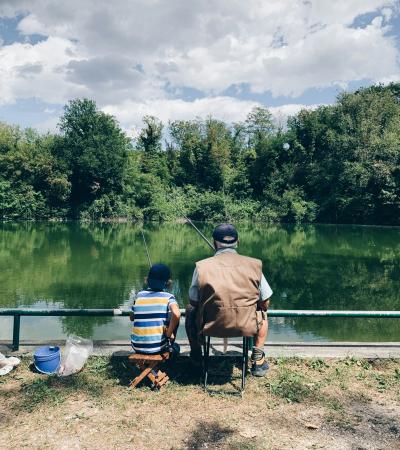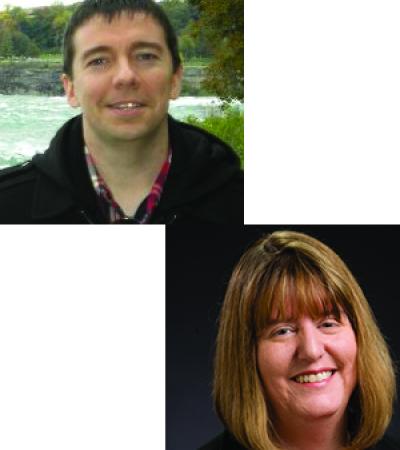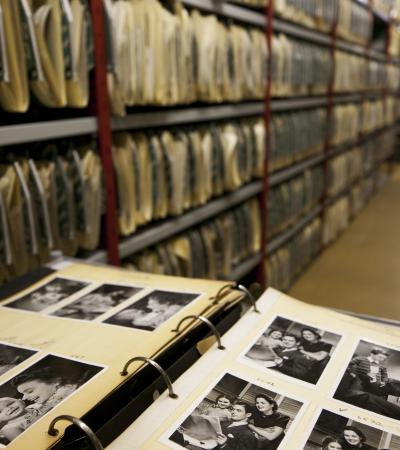Ok, I’ll admit it. I don’t really know that much about genealogy, only that it is a hobby in which individuals trace their family histories. This appears to me to be a no-win situation, because I am always leery of what I could potentially discover. Would my family be a veritable rogues’ gallery of ne'er-do-wells that I would have to explain or apologize for? I could just imagine running into a fellow genealogical enthusiast at a local Jamboree and having to apologize to them AND their ancestors for the fact that my great-grandfather stole and ate some oxen from them in Jamestown!

The next logical notion is that I discover that my ancestors were any number of well-renowned or respected individuals, pioneers, inventors, kings or queens. History is littered with them. Of course, after an immediate and albeit brief period of gloating, I would then be beset by a considerable amount of lamentation due to the fact that I had not lived up to their standards. I mean, why couldn’t I have invented the cotton gin, or at least the Snuggie? Finally, and arguably the worst, is the thought that my entire lineage really didn’t make a mark at all, but flew under the veritable radar of history. Just laying low and punching the clock day in and day out. Notoriety? No thank you, we’ll pass.
Genealogy for kids — a win!
On the other hand, I know people who have fascinating family histories. In fact, genealogy sometimes becomes their passion. Not only do they enjoy doing it, but they take pleasure in getting together in person and online with others to network, collaborate and even help people who are struggling with their own research. So it occurred to me one day that we should help get the next generation of genealogists started. That was my initial thinking behind Genealogy for Kids at my library.
I put the program thought into my mental program processor. A program designed to partner with a local community organization — WIN! A program to encourage young people to explore their family trees — WIN! A program that promotes library resources — WIN! A program that promotes intergenerational knowledge sharing — WIN! Relatively cost neutral — WIN! OK, I am no mathematician, but that is at least four wins, right?
Finding a partner
I then went looking for my community partner. Those of you that live in beautiful Southern California know that we are extremely fortunate to have a very active, supportive and, dare I say, kind local organization known as the South Bay Cities Genealogical Society (SBCGS). Their organization happens to meet monthly at our library and has a designated space to house materials and assist people with researching their roots. Suffice it to say, they are knowledgeable, dedicated and community-minded. They have research skills and are not afraid to use them.
When I approached SBCGS about doing a program for kids, they were immediately receptive and got to work developing a plan. Together we outlined our respective roles, what the library would be responsible for and what SBCGS would be responsible for. The library would provide the room, technology, publicity, print materials and facilitate registrations. SBCGS would devise the scope, develop an agenda for the day, and design the worksheets and core concepts.
The program takes shape
After several meetings, the program became a three-hour workshop designed for children in fourth through eighth grades. Attendees would complete a heritage chart, a family group chart and a genealogy worksheet in which they would identify key genealogy terms and answer questions. Students would use online resources such as Ancestry.com via the library’s wireless network to find public records of family members. Prior to the event, SBCGS would host a training session for the volunteers to ensure they knew each step of the process, their assignments, and to make sure the library’s technology worked.
While it was designed for all children at those grade levels, the program included the essentials necessary for the completion of the Boy Scout merit badge in genealogy. The program would also be useful to Brownies completing their My Family Story Badge. This was an added bonus as we promoted it to local Scout troops. Parents were invited to attend but were asked to remain on the sidelines while their children completed the workshop, kind of like they do at school plays. Library staff took prior registrations using Google Docs and called to confirm registrations a week before the event. Each participant was asked to bring a sack lunch, a three-ring binder with paper and pencil, notes from interviews of older family members, including names, dates and places of family members’ births. Scouts were asked to bring their badge record sheet.
The day of
Come a pleasant Saturday in March 2011, we had approximately 22 students (17 boys, 5 girls, in fourth through eighth grades), 6 parents and 14 volunteers in attendance. As they went through the workshop, they created a heritage chart, family group chart, created a timeline, and were given a list of bona fide free Internet sites for genealogical research. They even got to look up a relative on Ancestry.com.
At the end of the program, each attendee received a signed certificate of completion from the program, a photo op and a firm handshake. All that was missing was a rendition of "Pomp and Circumstance."
Since that momentous day, we have had two subsequent Genealogy for Kids programs, each as rewarding as the last. Every time, we go back to the drawing board and make improvements.
A sentimental end (or not)
Sometimes programs come together in such a way that that they make you want to walk away from it all. Why? Because you know you have struck a high note. You hit all the bars and you wonder if there will ever be such an amazing program like it again. This is what our Genealogy for Kids program was like for me — and why we keep doing it. The program was exceptional for the library to host because it was an intergenerational event, involved a wonderful community partner, utilized technology and was virtually cost-neutral (attendees were asked to bring their own lunch, volunteers brought snacks, and I just feed off of the good will).
Those that know me know I don’t get sentimental much about anything. But seeing genealogy volunteers work with young people and get them acquainted — nay, even enthusiastic — about their roots is heartwarming, even to me! So heartwarming, that I might even shake my own family tree to see what nuts fall out.
If you have any questions about this program, please feel free to contact me.



